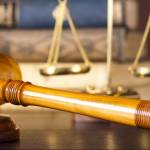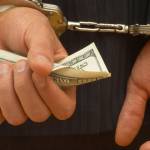You’ve seen it a hundred times in courtroom movies and TV dramas. An eyewitness to a crime points dramatically at the defendant and says something like, “He did it.” Usually, the music rises at this point, and the guilty verdict is inevitable. But that’s only for television and the movies.
In real life, even though thousands of people are sent to prisons in the U.S. each year for criminal convictions, not all of them are guilty of committing a crime. This is where an assault and battery lawyer can help.
For decades, research has been casting doubt on the reliability of eyewitness identifications of criminal suspects. In fact, researchers have compiled substantial evidence that the impressionable nature of memory and perception inevitably makes eyewitness testimony unreliable.
WHAT IF YOU ARE WRONGLY ACCUSED OF A CRIME?
Still, prosecutors routinely rely on eyewitnesses to deliver crucial testimony against criminal defendants. Can you be convicted for a crime that you didn’t commit on the basis of a misidentification? If you are wrongly charged with a crime in New York, what are your options?
If you are charged with any felony or with any misdemeanor in New York City, it is imperative to contact and meet with an experienced Long Island criminal defense attorney as quickly as possible.
WHY IS EYEWITNESS MISIDENTIFICATION A GROWING CONCERN?
Eyewitness misidentifications in criminal trials have been a growing concern for nearly two decades. That’s because DNA evidence is now being used routinely to prove irrefutably the innocence of persons who had been previously convicted on the basis of eyewitness testimony.
How does misidentification happen? Here’s an example. Let’s say that someone is shot and dies in front of several witnesses. One witness claims that you are the person who pulled the trigger and that you immediately fled.
This alone gives the police sufficient cause to arrest you and launch an investigation. If your case goes to trial, and if the trial jurors believe the eyewitness, it is conceivable that you could be convicted and imprisoned for manslaughter or even for murder.
HOW OFTEN DO EYEWITNESSES MISIDENTIFY SUSPECTS?
Juries do tend to trust eyewitnesses, but research tells us that eyewitnesses can misidentify suspects and defendants for a variety of reasons related to memory and perception.
According to the Innocence Project, wrongful eyewitness identifications played a role in seventy percent of 364 criminal convictions that have been overturned in the U.S. since 1992. Witnesses simply were wrong. For whatever reason, they contributed to an innocent person’s conviction.
If you are charged with a crime in New York, if you are innocent of the charge, and if your attorney cannot have the charge dropped or dismissed, you should not accept a plea bargain. Rather, you should insist on your right to a trial by jury.
HOW WILL A DEFENSE LAW FIRM IN NY CHALLENGE A MISIDENTIFICATION?
If you are tried for a crime because an eyewitness has misidentified you, an accomplished defense lawyer will challenge that testimony by asking questions like these:
- Did the witness know the defendant prior to the crime?
- How well could the witness see? Was it dark? What lighting was being used?
- How far away was the witness? Was his or her vision obstructed in any way?
- Was the witness impaired by drugs or alcohol? Does the witness have a vision problem?
- How much time elapsed between the crime and the (mis)identification?
In 2017, the New York Legislature adopted legal reforms aimed at reducing the number of wrongful convictions and eyewitness misidentifications. What can be the consequences of eyewitness misidentification?
WHY IS THE OTIS BOONE CASE SO IMPORTANT IN NEW YORK?
For Otis Boone, 27, eyewitness misidentification meant seven years in prison. In 2017, New York Appellate Court judges ordered a retrial and required that going forward, New York judges must explain the “cross-race effect” to jurors in cases involving eyewitness identifications.
The cross-race effect is the tendency to recognize more easily faces of one’s own race. In a study of real court cases, cross-race eyewitnesses made correct identifications in only 45 percent of the cases, while same-race eyewitnesses made correct identifications in 60 percent of the cases.
At his retrial earlier this year, Boone was acquitted of robbery after attorneys told the New York Court of Appeals that the cross-race effect made it impossible for the witnesses to identify Boone with absolute certainty.
ARE THERE OTHER REASONS FOR EYEWITNESS MISIDENTIFICATIONS?
Along with the cross-race effect, other reasons for eyewitness misidentifications include:
- Lineups: Police officers who conduct lineups may subtly encourage a crime victim to choose a suspect out of a lineup – even if no one in the lineup perpetrated the crime.
- Stress: Victims who are exposed to stressful circumstances (like having your life threatened with a firearm) may not remember important details about a person’s appearance.
- Time, distance, and lighting: If a long period of time has elapsed since the crime, if the lighting was poor, or if the witness was some distance from the perpetrator of the crime, an eyewitness identification probably will not be reliable.
Especially after the Otis Boone case, the courts in New York are taking every measure to avoid basing convictions on eyewitness identifications alone.
WHAT SHOULD YOU DO IF YOU ARE WRONGLY ARRESTED?
If you are arrested in New York City for a crime – any crime – on the basis of eyewitness identification (or misidentification), you must exercise your right to remain silent and your right to have an attorney present during any questioning.
Be polite and cooperative with the police, but be insistent regarding your rights. Don’t resist the officers, but do not give your verbal consent to a search of your home, vehicle, or person. As quickly as possible after an arrest, contact an experienced Long Island criminal defense attorney.
If you are wrongly facing a criminal charge because of eyewitness misidentification, a good criminal defense lawyer will raise doubts about the testimony of that eyewitness. Your attorney will fight aggressively for the truth and will bring your case to its best possible conclusion.
If you are charged with a crime in New York, whether you are innocent or guilty, you have the right to be represented by a good criminal defense attorney, but you must exercise that right, take the first step, and make the call. Nothing is more important than your future and your freedom.















Comments are closed.